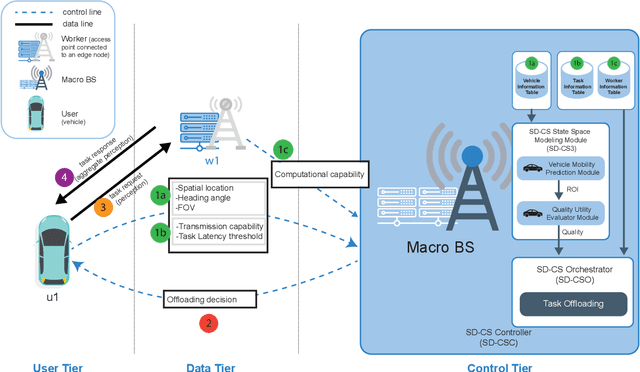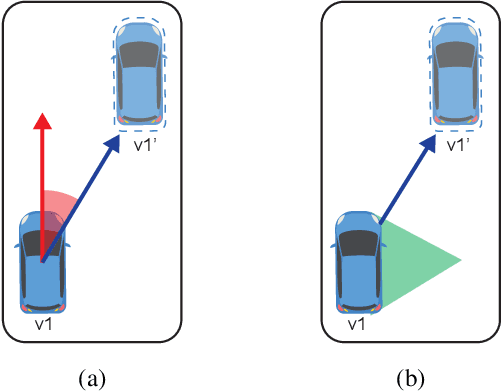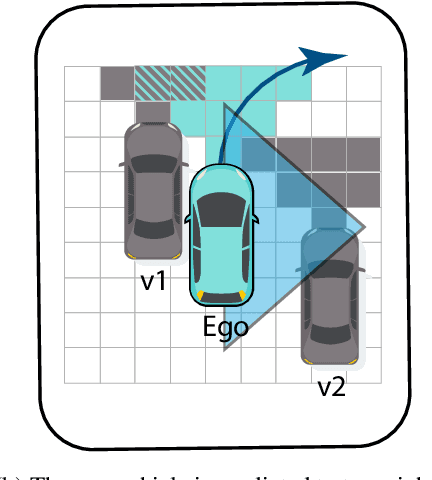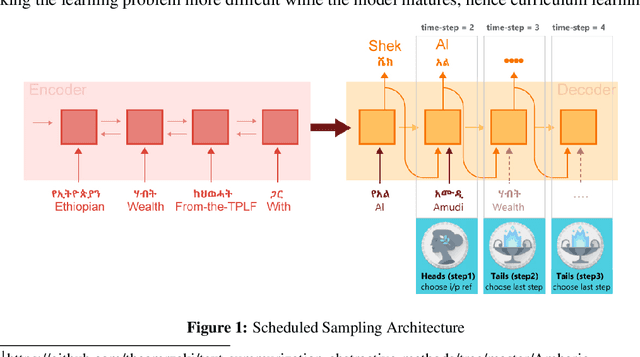Amr M. Zaki
Quality-Aware Task Offloading for Cooperative Perception in Vehicular Edge Computing
May 31, 2024



Abstract:Task offloading in Vehicular Edge Computing (VEC) can advance cooperative perception (CP) to improve traffic awareness in Autonomous Vehicles. In this paper, we propose the Quality-aware Cooperative Perception Task Offloading (QCPTO) scheme. Q-CPTO is the first task offloading scheme that enhances traffic awareness by prioritizing the quality rather than the quantity of cooperative perception. Q-CPTO improves the quality of CP by curtailing perception redundancy and increasing the Value of Information (VOI) procured by each user. We use Kalman filters (KFs) for VOI assessment, predicting the next movement of each vehicle to estimate its region of interest. The estimated VOI is then integrated into the task offloading problem. We formulate the task offloading problem as an Integer Linear Program (ILP) that maximizes the VOI of users and reduces perception redundancy by leveraging the spatially diverse fields of view (FOVs) of vehicles, while adhering to strict latency requirements. We also propose the Q-CPTO-Heuristic (Q-CPTOH) scheme to solve the task offloading problem in a time-efficient manner. Extensive evaluations show that Q-CPTO significantly outperforms prominent task offloading schemes by up to 14% and 20% in terms of response delay and traffic awareness, respectively. Furthermore, Q-CPTO-H closely approaches the optimal solution, with marginal gaps of up to 1.4% and 2.1% in terms of traffic awareness and the number of collaborating users, respectively, while reducing the runtime by up to 84%.
Amharic Abstractive Text Summarization
Mar 30, 2020
Abstract:Text Summarization is the task of condensing long text into just a handful of sentences. Many approaches have been proposed for this task, some of the very first were building statistical models (Extractive Methods) capable of selecting important words and copying them to the output, however these models lacked the ability to paraphrase sentences, as they simply select important words without actually understanding their contexts nor understanding their meaning, here comes the use of Deep Learning based architectures (Abstractive Methods), which effectively tries to understand the meaning of sentences to build meaningful summaries. In this work we discuss one of these new novel approaches which combines curriculum learning with Deep Learning, this model is called Scheduled Sampling. We apply this work to one of the most widely spoken African languages which is the Amharic Language, as we try to enrich the African NLP community with top-notch Deep Learning architectures.
 Add to Chrome
Add to Chrome Add to Firefox
Add to Firefox Add to Edge
Add to Edge